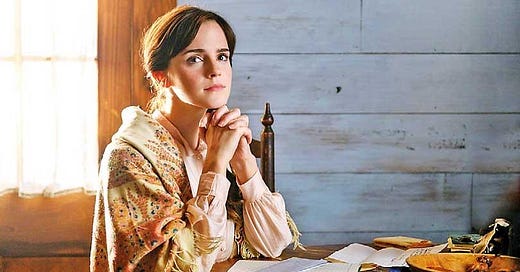One of my all-time favorite movies is the Greta Gerwig version of Little Women. The story of the March sisters is one that’s very near and dear to my heart, and I absolutely loved Greta’s interpretation (can’t wait for her take on Chronicles of Narnia!)
In the movie, as Meg prepares to get married, her sister Jo is horrified. Why would she abandon a life of freedom? Shouldn’t they run off and have adventures together instead? But Meg turns to her and, drenching her voice with big sister tough-love, says: “Just because my dreams are different than yours doesn't mean they're unimportant.”
This line was rightly celebrated. After all, many of us have wildly different dreams, and the Holy Spirit works in all women in different ways. Some of us are called to be brain surgeons and some of us are called to be consecrated nuns and some of us are called to be stay at home moms and some of us are called to lead ministry events and some of us are called to be foster parents and some of us are called to be Pixar animators and all of those are worthwhile, beautiful choices, when made with proper discernment. As St. Therese said, we’re all lovely wildflowers: if we were all the same, what a lame garden that would be.
This idea is typically considered choice feminism. Choice feminism is like, well, regular feminism—hard to pin down and define. My definition is different than yours is different than your gender studies professor’s is different than your uncle’s. But essentially, the idea boils down to the idea that women’s choices are inherently feminist if she is the one making them.
On the one hand, this sounds fair. Women should be empowered to make their own choices about their vocations, careers, and lifestyles.
But does that make all of their choices inherently feminist?





